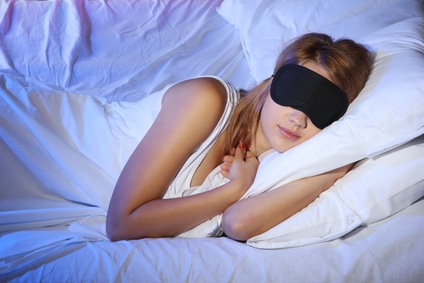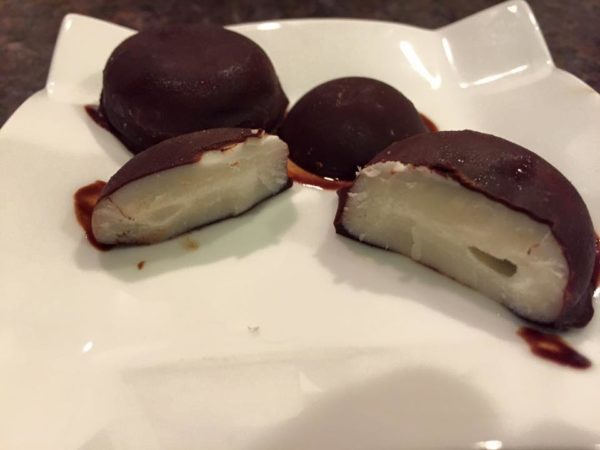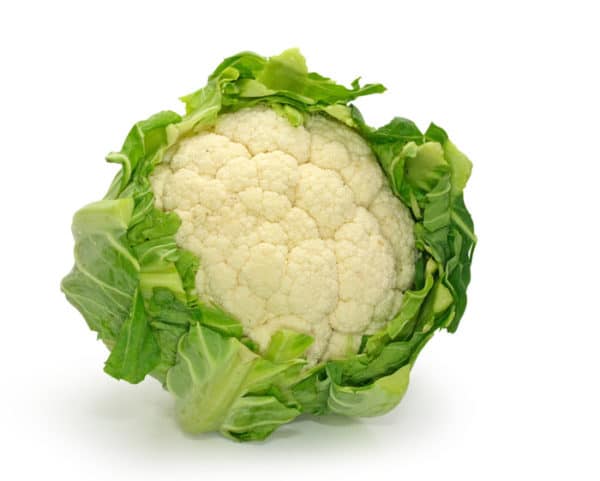

Are you one of them?
If so, your body is likely suffering from poorer detoxification, lowered immunity, inefficient fat burning, increased insulin sensitivity, increased inflammation, and increased risk for disease.
Who knew a good night’s sleep was so much more than just feeling cranky the next day!
We’ve all had those late-to-bed nights, or nights when we just can’t sleep. Statistics say a third of you sleep 6 hours or less (like me); and many of you may routinely wake-up throughout the night. So what is happening? What is controlling or disrupting your sleep?
The answer to that is your internal biological clock.
Your sleep is regulated by your circadian clock, an internal biological clock that regulates a 24-hour cycle within your body. Your circadian clock (“circadian rhythm”) regulates the release of hormones in your body throughout your day, and at night it regulates nearly every hormone in your body to do restorative cleanup and repair. These hormones handle detox and metabolic waste removal, lean body growth and repair, fat burning, the repair of insulin sensitivity, and so much more.
When you hear about serotonin, melatonin, 5-hydroxytryptophan (5-HTP), and tryptophan, they usually sound like they are totally different things you can try to utilize to help you sleep. Really, they’re all quite related to one another. If it was a perfect world, this is what would happen when you go to sleep.
You need to consume tryptophan, an essential amino acid, to start the process, and you need to get it from an outside source. In a three-step process, tryptophan is converted to 5-HTP, which is then converted into serotonin. The serotonin then converts to melatonin, which makes your body’s biological clock run smoothly, and tells you when it is time to go to sleep and when it’s time to haul yourself out of your cozy bed. It is the master clock, if you will, making you sleepy – or alert – at the proper times, because the melatonin produced is released in higher amounts the darker it is, while the amount lessens with more light. Since tryptophan is the only amino acid that can convert to serotonin, it is also the only one that can ultimately up your melatonin.
Your circadian clock’s timing is also set by light-dark cycles that you are exposed to throughout the day.

When the “awake” message is triggered, your pineal gland secretes hormones to get you up and going, such as an increase in cortisol. Your body temperature becomes elevated, and other physical changes occur.
When your eyes are not being hit with light, your hypothalamus knows it is nighttime, making it time for restorative rest and repair. Sleep-friendly hormones such as melatonin are produced by the pineal glands, which tell our body to calm, relax, and sleep.
Imagine, between the years 1910 and 1960 the normal sleep time was 9 hours. Now it is 7.5, although about 1/3 of the population sleep 6 hours – or less! What has light got to do with this? Think about it…with all of our modern day electronics and lighting! Our internal clocks are often confused, and we lose touch with sleep more and more every day. Technology, stress, energy drinks, stress, readily prescribed medications, and did I mention stress? All of those things contribute to sleeplessness, and I can almost guarantee everyone who reads this list will struggle with at least one of the above.
That is why you need to turn off bright lights as soon as possible after sunset to encourage natural melatonin production. By dimming the lights an hour or two before you go to bed, you send a signal to your pineal gland to start producing melatonin. Additionally, studies now show melatonin protects you from cancer cell growth while you sleep.
The flickering bright lights of screens also inhibit melatonin production. To get optimum melatonin and a really deep and sound sleep requires darkness, or at least dim lighting. The computer is especially problematic since it’s in such close proximity to your eyes.
If dimming the lights or getting away from your electronics for two hours before bedtime is difficult, start with 1 hour before bedtime, and then gradually extend the time. This will help your body get to sleep more quickly. And try and get to bed before 11:00 p.m.
Get to bed by 11:00 p.m. for the maximum benefits of sleep
Studies show time spent sleeping before 11:00 p.m. is especially helpful, while time awake after 1:00 a.m. is especially harmful when it comes to health issues such as insulin resistance. Getting to bed by 11:00 p.m., or at an even better 10:00 p.m., results in a larger peak of growth hormone (helps you burn fat, build lean muscle tissue, and detoxify) within an hour of falling asleep. Leptin also goes to work burning fat and storing lean muscle during the night.
Studies show that 9 hours of sleep per night might be best when it comes to blood glucose regulation and reducing belly fat. By slowly moving your bedtime earlier, and by keeping your “getting up” time the same, you can gradually increase the number of hours you sleep.
Deep sleep is important to support your hormones
During the night your body cycles between different stages of sleep. The bulk of the growth hormone secretion, along with many other reparative processes, occurs in your deeper sleep cycles. So if you sleep really light, or get up a lot during the night, you likely aren’t getting a solid restorative sleep. This will make your hormones out of balance, and studies have shown there will be many other impactful results from a lack of deep, quality sleep. Just one such example: Glucose clearance rates were shown to be depressed by 40 percent after just four days of sleep restricted to four hours a night (this is comparable to having gestational diabetes, which is the diabetes that some women get during pregnancy!).
Growth hormone is impacted as well. If you only have a few hours of deep sleep (if you are getting up at night or waking up a lot) you will have much lower growth hormone.
So what are some ways to have a deeper quality sleep? 
- Minimize cortisol surges before bedtime (don’t watch the news or stimulating shows right before bed as this causes your body to produce cortisol – which is your “awake” hormone!). Cortisol reduces the rate of fat-burning during sleep, too.
- Don’t eat anything at least 3 hours before bedtime – if your body is digesting food you won’t sleep well. If your body is surging with insulin and you’ve just eaten, you are not going to produce enough growth hormone, so you are not going to feel rested, nor will your body have had the repair and regenerative processes it requires.
- Don’t engage in intense mental activity before bedtime – this gets your brain waves buzzing at a high-frequency, and will likely make your body take longer to slow down, calm, and enter the alpha wave sleep phase.
- Don’t engage in intense exercise before bedtime – Your body falls asleep more easily and stays asleep when your body temperature starts to drop and your body slows down. When you exercise before bedtime it revs up your metabolic engine and generates heat, just the opposite of what your body needs to fall to sleep.
- Breathe deeply and reset your thoughts to feel positive, calm, and relaxed – as part of your bedtime ritual (and we all need to have a ritual, where we get into a relaxed mode that becomes familiar and calming), take a moment to appreciate something about your day, to listen to soft music, or to just center your mind on relaxing thoughts. And don’t forget to breathe deeply! Keeping a sleep journal is also helpful. At bedtime, write down the things you are grateful for; make your bedtime ritual a time of relaxation and appreciation.
- Warm baths (if they help you) – not everyone enjoys a warm bath, but for some, a lukewarm bath 45 – 90 minutes before bed can help you sleep better, especially if you add a few drops of lavender oil. Epsom salt baths can also be nice as a “sleep-inducing” treat.
- If you must have a late-night snack, eat foods high in the amino acid tryptophan. Tryptophan is an essential amino acid that converts to serotonin, which then converts to melatonin. Remember, melatonin helps maintain our sleep and wake cycle by causing drowsiness and lowering the body temperature, which works with the central nervous system to sync our biological clock. Its production is inhibited by light, but released in low light/darkness. Some foods such as pumpkin seeds (one of my favorites), walnuts, and almonds are high in tryptophan. A ½ cup to 1 cup of tart cherry juice is a tasty way to drift off to sleep, and is a natural sleep aid.
Supplements and herbs that can help with your sleep
Along with having a bedtime ritual (I sometimes use candles; come up with your own relaxing strategies), and following the above recommendations, there are a variety of herbs and supplements that can be helpful (even though I am a proponent of generating your own melatonin, if at all possible!):
- Passion flower – this herb helps turn off the “mind chatter” that keeps people up
- Lemon Balm – you can buy a lemon balm plant and just pinch one of the leaves. Take a whiff prior to bedtime, or use the essential oil on your pillow. Very soothing.
- Chamomile – makes a really nice, relaxing tea, and it is great to soothe your digestion, too.
- Valerian – a stronger herb that can often do the trick if the above don’t work
- Magnesium – many people are deficient in this nutrient, so you can experiment to see if taking some helps. Note that excess magnesium can cause loose stools.
- 5-HTP with Vitamin B6 – helps support the production of serotonin and then melatonin
- Melatonin – available over the counter – your body’s sleep hormone
- Phosphatidylserine is an amino acid complex that you can take to drop down those cortisol levels. If your cortisol is high at night (your stress hormone from your adrenal gland), and you take some of this, it can help decrease the cortisol levels so you can fall asleep. It’s not an herb you want to take during the day.
- Progesterone – helps promote deep sleep when you have an issue with sleep; it calms you by activating GABA, which is an inhibitory neurotransmitter. If you are out of balance, like if you are going through menopause, and your estrogen and progesterone are up and down, a little bit of progesterone can help some people.
Bottom line is if you are not sleeping well, there are a lot of things you can try to improve the length and quality of your sleep. And just like with nutrition, exercise, and reducing stress (as priorities in your health), focus on sleep as a priority, too (without stressing over it; that may make your sleep worse!).
Sleep is definitely more than just waking up cranky or having lack of focus the next day. Over time, poor sleep can cause disease, a lot of hormone infighting, as well as impact insulin resistance, weight loss, and many other important health issues.
Sleep is one of the seven pillars we help you with in our year-long Energy Recharge Coaching program. The other seven pillars are Stress Transformation, Attitudes and Beliefs, Nutrition, Fitness, Environment, and Fun (my favorite pillar of all!). If you’d like to learn more about this great program – and the coaching that goes along with it – you can read more at http://www.EnergyRechargeCoaching.com. If you would like to talk to us some more and have your questions answered to see if this is truly a good fit for you, apply at http://www.ERCApply.com.
Share this:

Are you feeling stuck?
Do you feel as if something is missing from your practice that's keeping you from delivering breakthrough outcomes for your clients?.
Recent Posts
Our Programs
Nutritional Endocrinology Practitioner Training (NEPT)
The Mastery and Certification tier is our flagship program and provides everything you need to feel confident as a practitioner who knows how to get results that lead to healthy and happy clients.
Functional Assessment Mastery
Explore the relationships between the most important hormones and their relationship with nutrition.
Functional Nutrition Mastery
Learn how to support your clients to eat and supplement in a way that reduces and eliminates chronic symptoms.
Medical Disclaimer: The information on this website is not intended to replace a one-on-one relationship with a qualified health care professional and is not intended as medical advice. It is intended as a sharing of knowledge and information from the research and experience of Dr. Ritamarie Loscalzo, drritamarie.com, and the experts who have contributed. We encourage you to make your own health care decisions based upon your research and in partnership with a qualified health care professional.
Disclosure: Sometimes (but not always), when I share resources in my programs, newsletter, and on my website, I'm using an affiliate link, which means I do make money if you buy. My credibility is extremely important to me; therefore, I only endorse the products, services, and people I believe in. DrRitamarie.com is independently owned and the opinions expressed here are my own.
Click here to see our Privacy Policy.












[…] is a recent article on how you can improve your sleep. Take note of some of the supplements that are suggested which can help with sleep. Also important […]